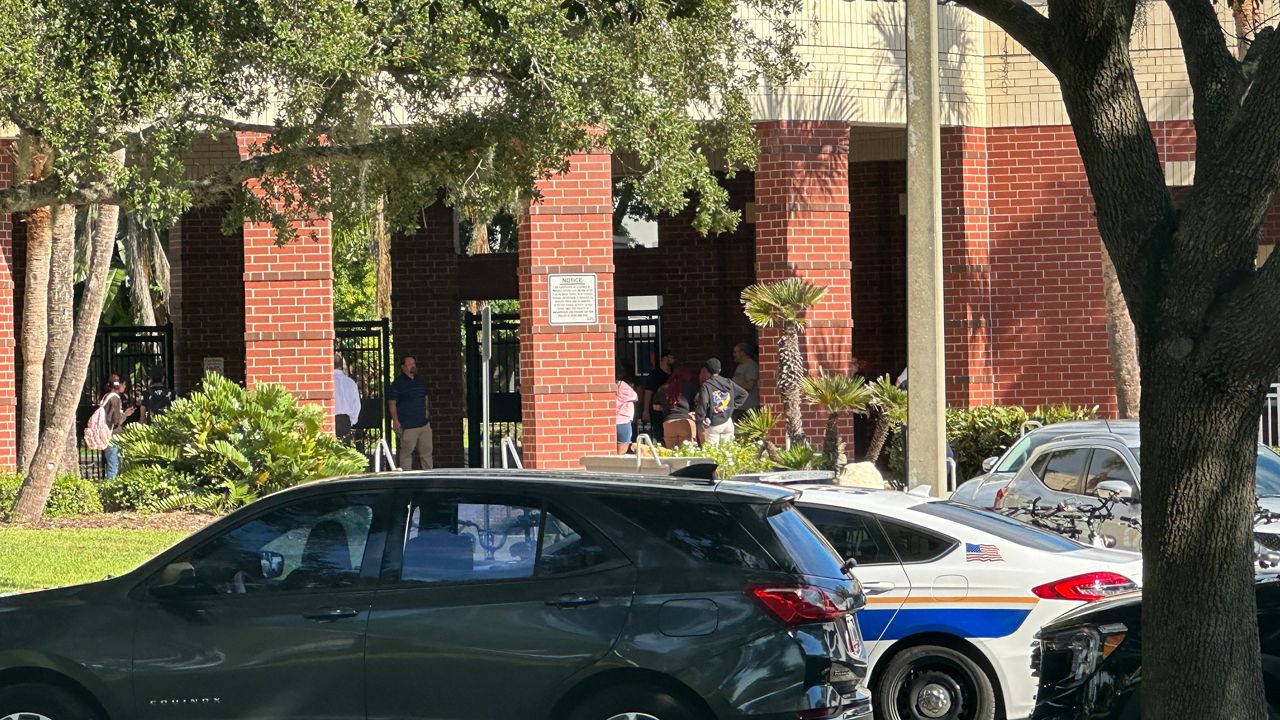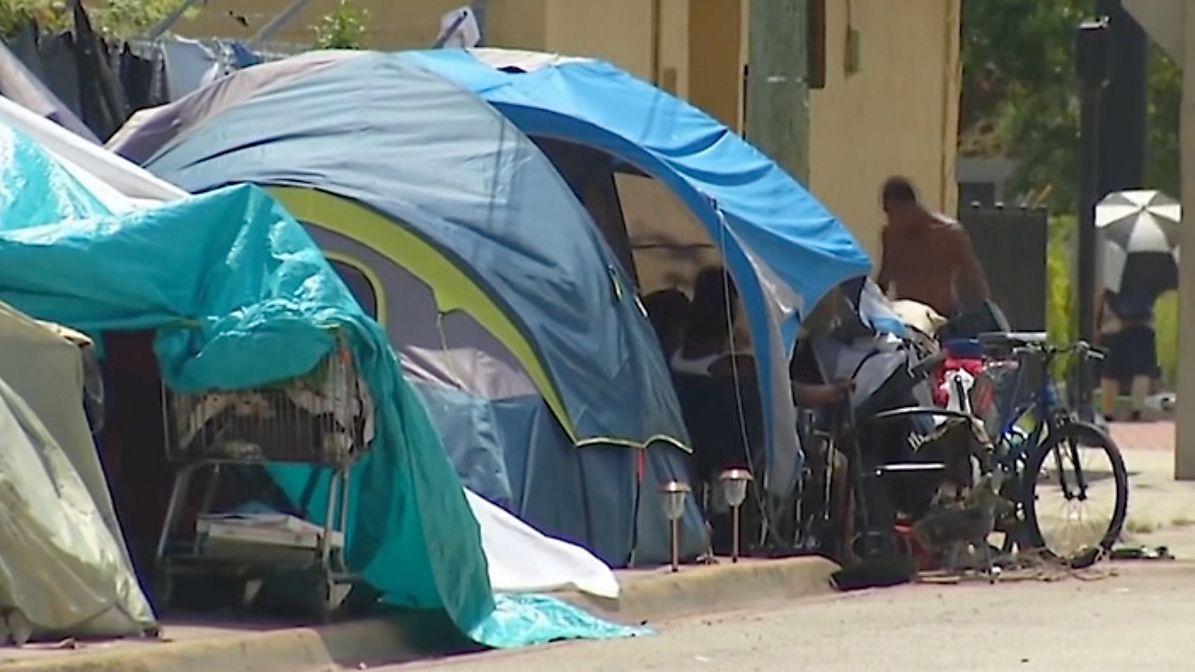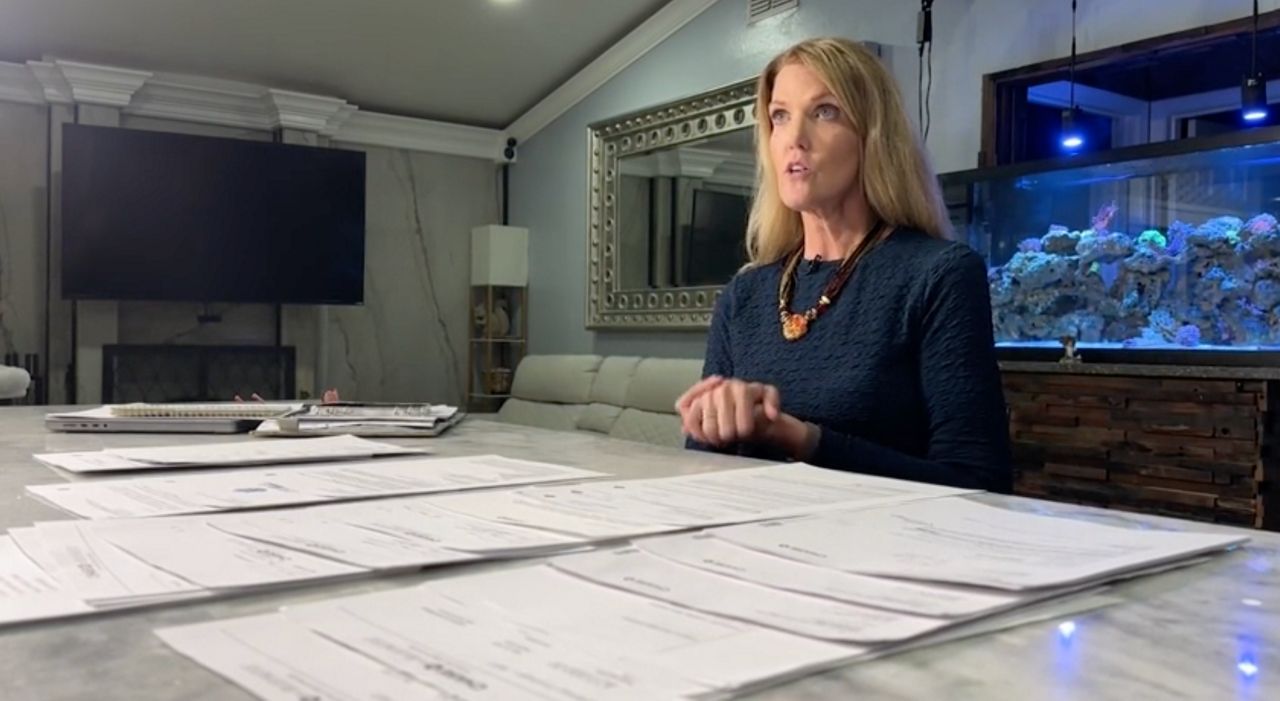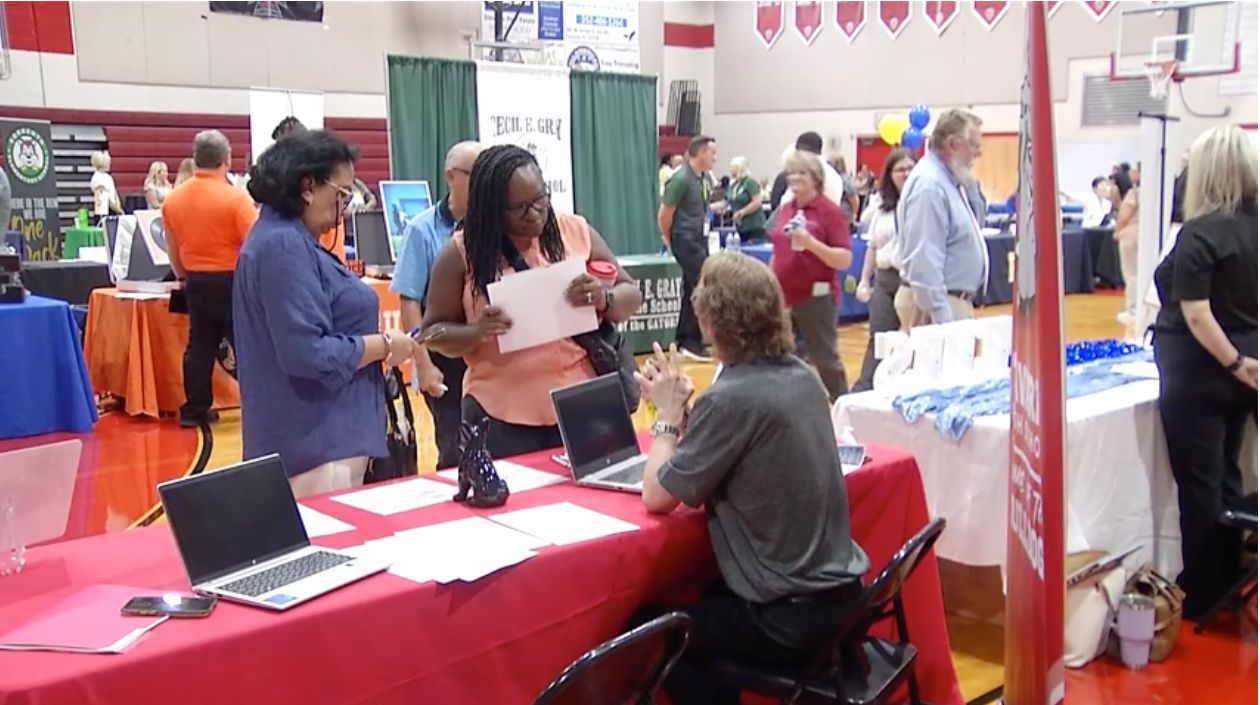ORLANDO, Fla. — Floridians are waiting to see whether Gov. Ron DeSantis will sign a bill to legalize needle exchange programs throughout Florida.
- Lawmakers approve clean needle exchange program
- Drug users could exchange dirty needles for clean ones
- Bill now sits on Gov. Ron DeSantis' desk
- RELATED: Watchdog: Pilot Clean Needle Exchange Program Already Underway in Miami
The bill, SB 366, is an effort to address the growing opioid epidemic and the resulting increases in HIV and hepatitis C cases across the state.
Rollins College graduate Jackie Wright wanted to take a firsthand look at how the opioid epidemic is impacting Orange County, a county without a needle exchange program. She focused her master of public health thesis on used syringes found on the streets of Orlando.
“We found syringes near Stonewall Jackson Middle School, Engelwood Elementary School, as well as Lake Como Elementary,” Wright said.
Wright says her findings revealed 53 syringes found on 351 randomly selected blocks, near schools, homes and shopping centers.
That's a syringe density of 151 syringes per 1,000 census blocks in Orlando — three times higher than San Francisco, which has needle exchange programs.
Wright says she was shocked at how easily she came across needles, including one instance in which she found a syringe by accidentally stepping on it.
Wright's study also found needles were highly concentrated in the blocks surrounding Curry Ford Road and South Semoran Boulevard, with 29 syringes found in three of four blocks surrounding the intersection.
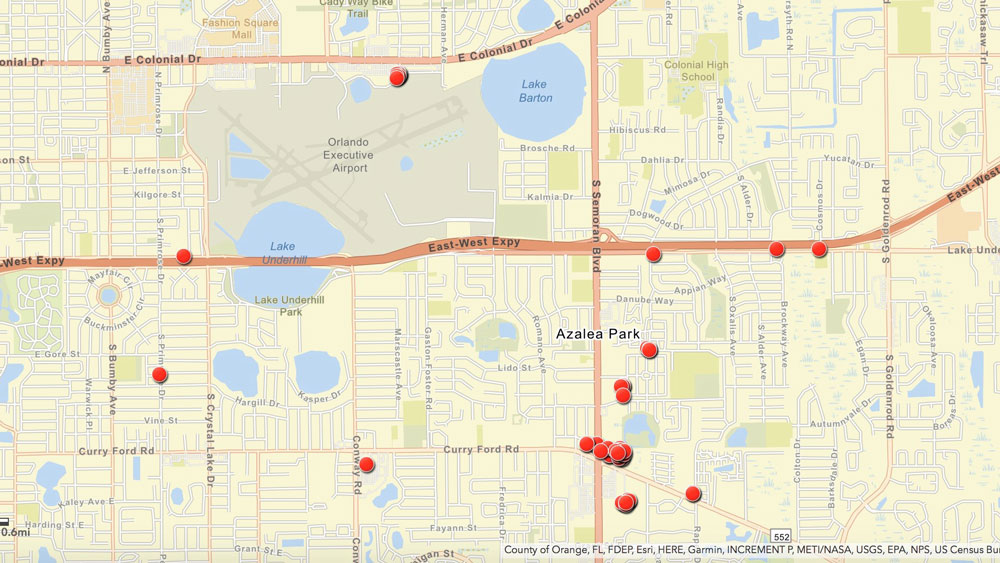
A map from Jackie Wright's thesis shows where discarded syringes were found in Orange County. (Map courtesy of Jackie Wright)
Taking Needle Exchange Programs Statewide
Earlier this month, Spectrum News 13’s Watchdog team traveled to Miami and went inside Florida’s only legal needle exchange pilot program. Program Director Dr. David Forrest says they’ve already seen an impact.
One of the biggest concerns with used needles are the diseases they can potentially spread, including HIV, hepatitis A, and hepatitis C.
In 2018, health departments across the U.S. reported such outbreaks — but not in Miami.
"We managed to... what we believe, was to stop an outbreak before it got very bad," Forrest said.
Orange County has the fastest growing rate of new HIV cases in Florida. New research shows that HIV transmission through injection drug use is also growing.
Heroin-related deaths have skyrocketed — 590 percent over a four-year period from 2010 to 2014, according to the Florida Health Department in Orange County.
The clean needle program includes treatment options for drug users.
State Rep. Rene Plasencia (R-Orlando) says given the ongoing health crises, having these programs in Orange County is essential.
“It’s absolutely dire. If our county doesn’t approve it, then it potentially could be the loss of life when it shouldn’t be,” Plascencia said.
If the bill becomes a law, it will be up to each county to decide whether to adopt a program. State money cannot be used to fund them.
No Orange County official agreed to publicly comment on whether they would support a needle exchange program.
DeSantis has until the first week of June to decide on the needle exchange bill. He could also veto it, or leave it alone, which means it would automatically become law.






